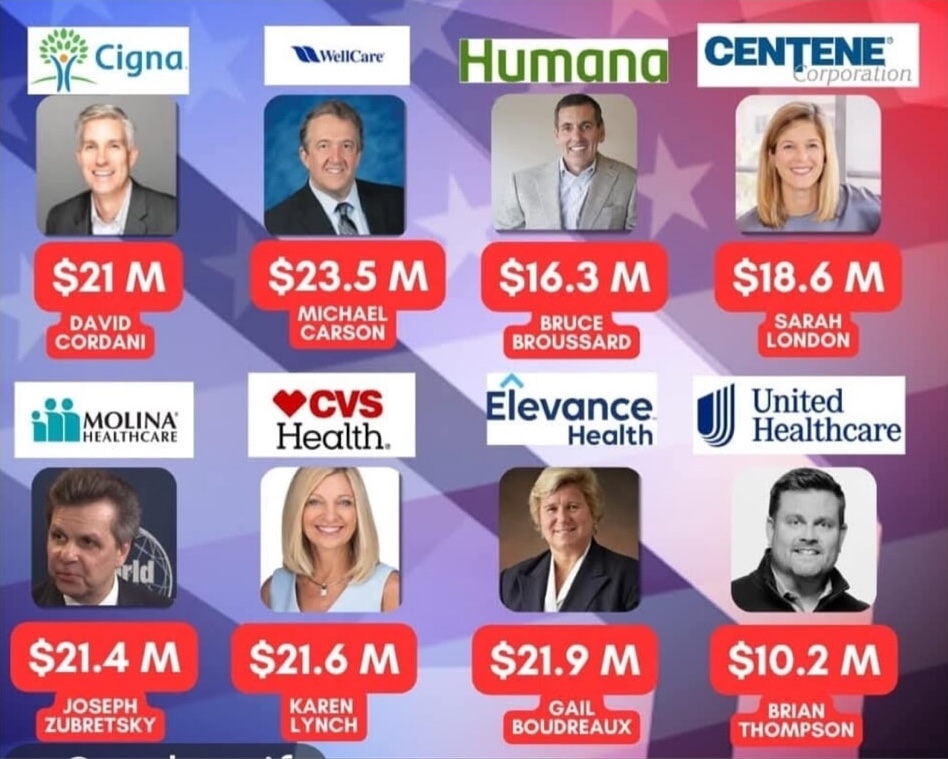On the day of Brian Thompson’s death, a Facebook post from United Healthcare announcing that tragedy received more than 62,000 reactions. It’s worth noting that 57,000 of them included the laughing emoji. That same day, news began to circulate about a new Anthem Blue Cross Blue Shield policy in New York, Connecticut and Missouri that would limit reimbursement for anesthesia.

Almost immediately the backlash included the sharing of names and photos featuring insurance company CEOs. It was a rogues gallery styled collection of portraits that included names and salaries. It was seen, by industry insiders, as an implicit threat.
According a the New York arrest warrant, Luigi Mangione, the man arrested and detained in Pennsylvania for Thompson’s murder, had “written admissions about the crime” with him. NYPD Chief of Detective Joe Kenny told ABC News that Mangione expressed a “disdain for corporate America” and indicated “he’s frustrated with the health care system in the United States.”
As he was physically dragged into a Pennsylvania courthouse for an extradition hearing, Mangione yelled to the press about “an insult to the intelligence of the American people.” Mangione’s writings were addressed to the “Feds.” He wrote: “I do apologize for any strife of traumas but it had to be done. Frankly, these parasites simply had it coming.” He also wrote that the U.S. has the most expensive health care system in the world, but ranks about No. 42 in life expectancy. He said United Healthcare “has grown and grown, but as to our life expectancy? No.”
He went on to express the opinion that the companies “have simply gotten too powerful.” And that “they continue to abuse our country for immense profit.”
While few would agree with Mangione’s actions, the sentiment finds resonance with most who can relate to the situations described in Delay Deny Defend, a book by Jay Feinman that details dozens of stories about victims who were unfairly denied payment by health insurance companies.